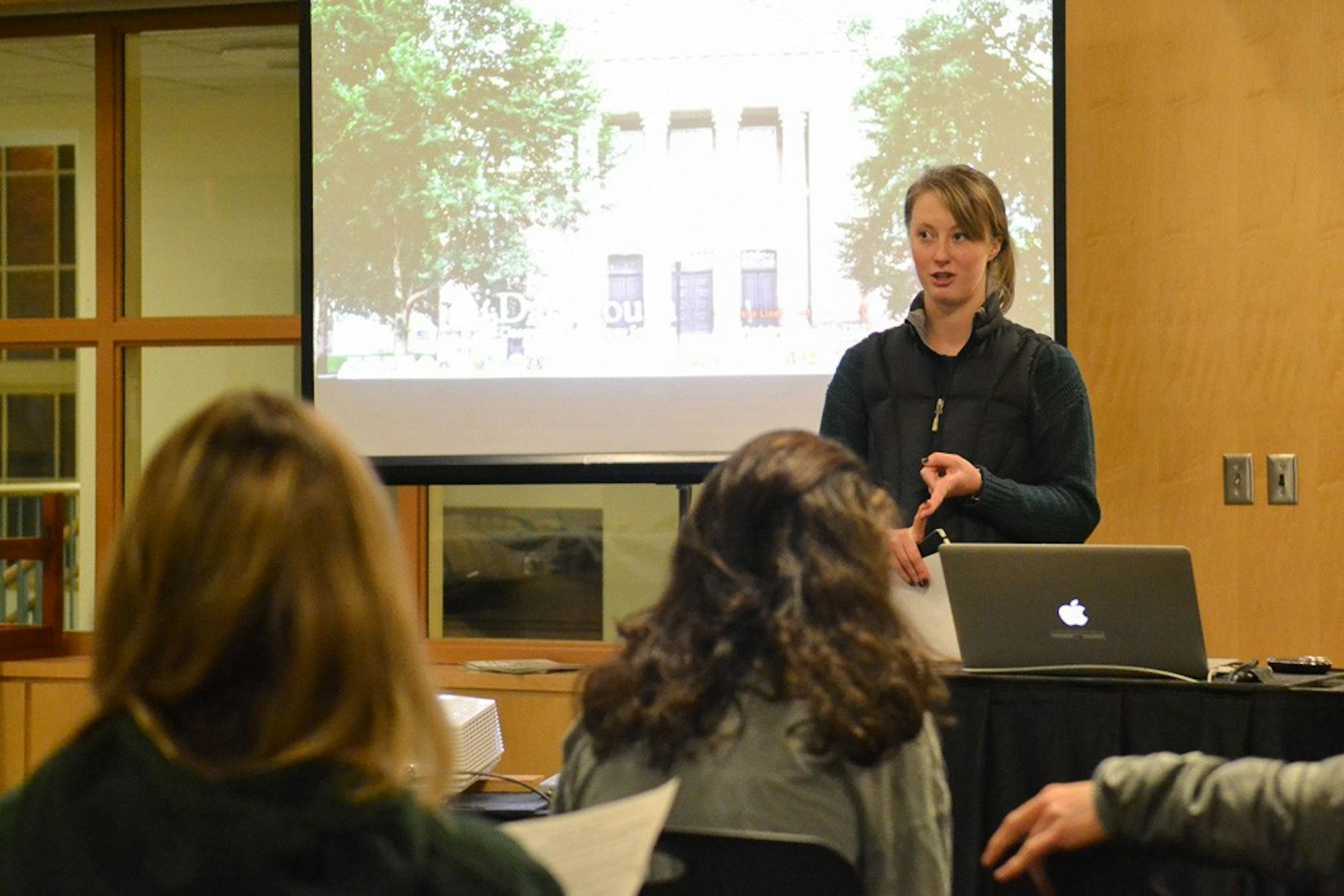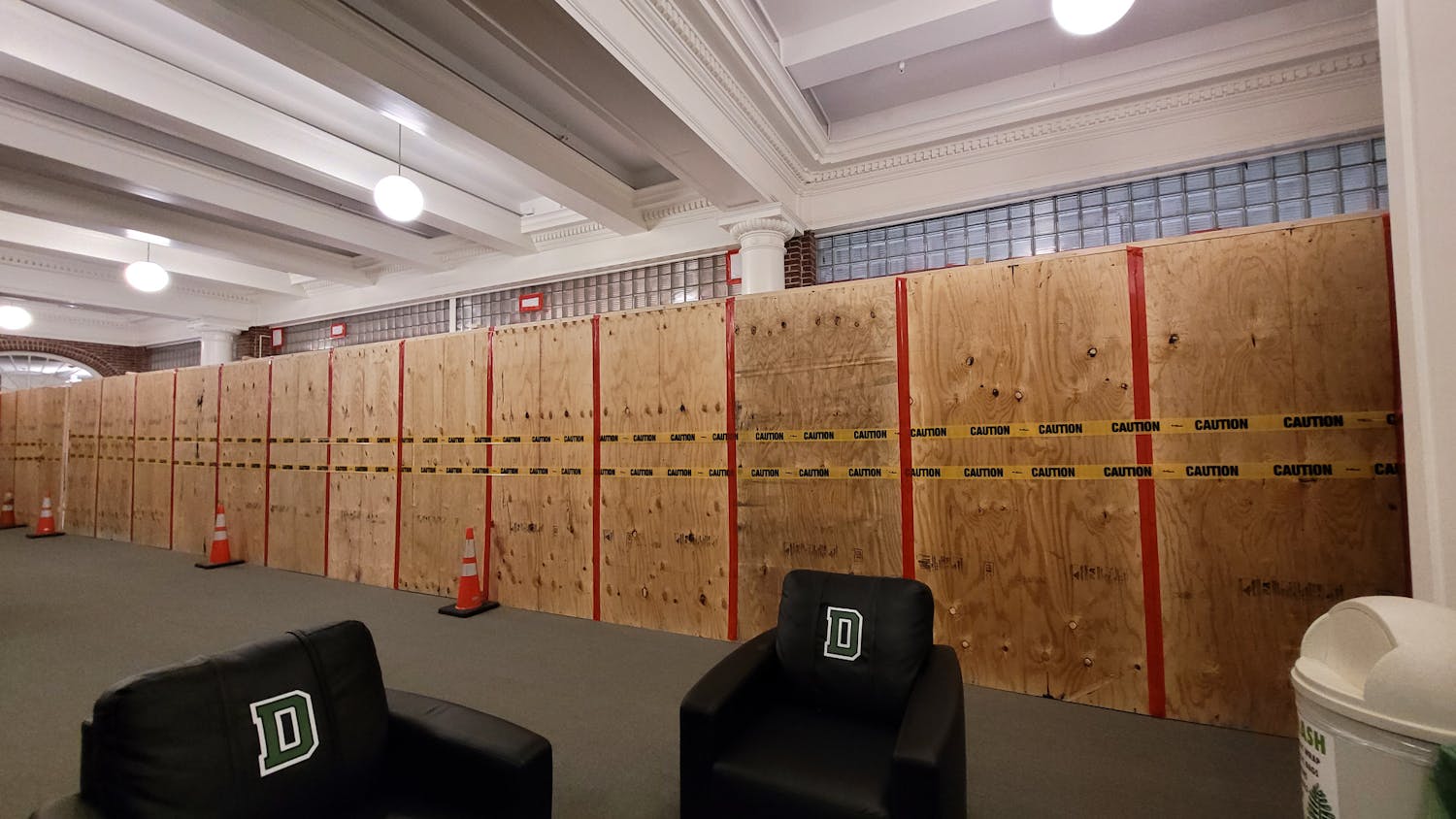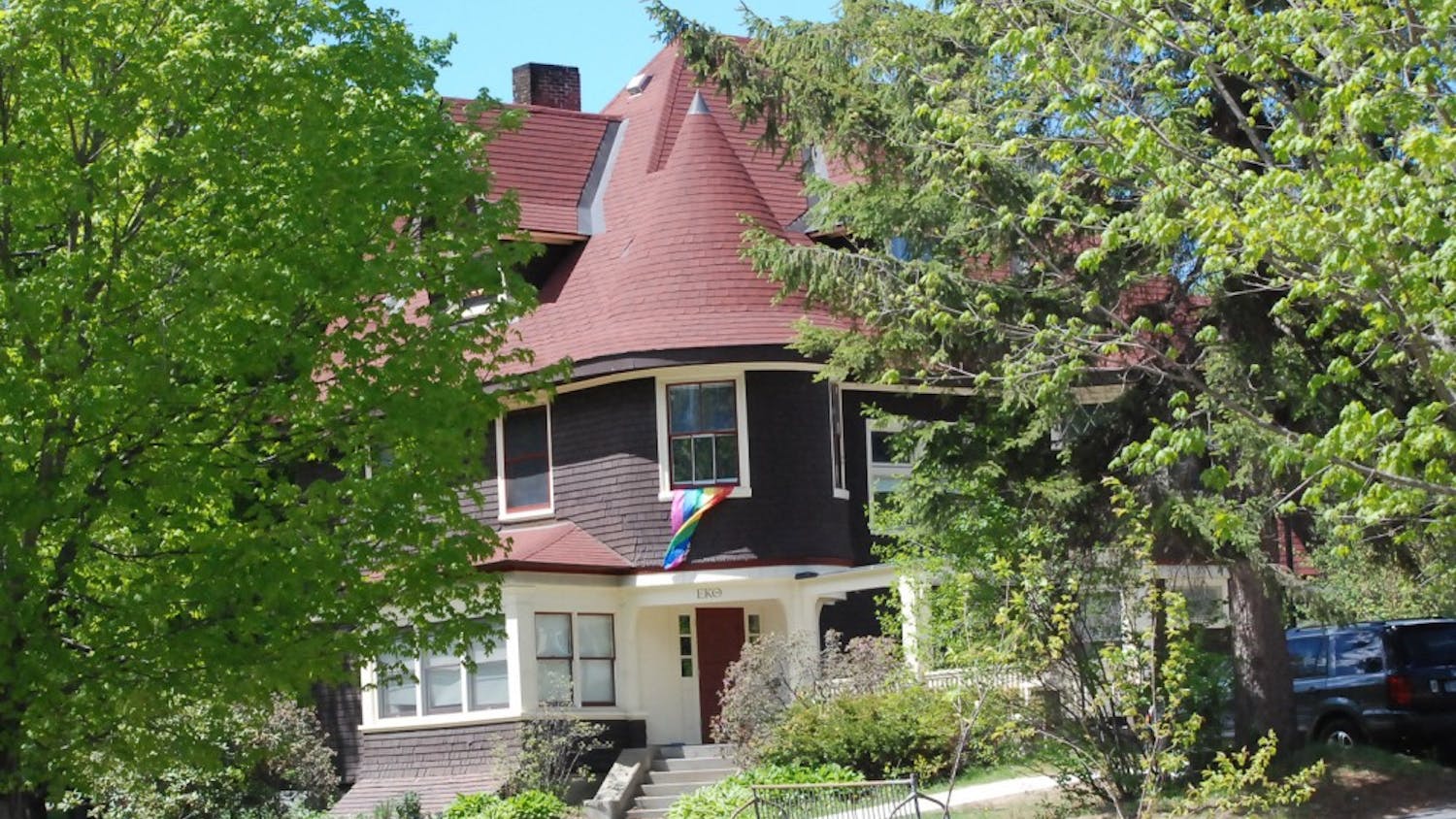The Student and Presidential Committee on Sexual Assault held a town hall Thursday night to discuss its recommendations, released in late October, that aim to combat sexual violence on campus. The discussion centered on five recommendations, including moving Greek houses toward coeducation and banning athletes who violate sexual misconduct policies from participating in athletics.
Other recommendations emphasized at the meeting included proposals to strengthen language on sexual assault in student organization constitutions, expand the scope of the physical education requirement to include health and wellness or educational programs and encourage students to undergo first-responder training.
SPCSA chair Sophia Pedlow ’15 said she was pleased with the discussions but disappointed by the turnout. Around 30 people attended.
“I think for us and the people here it was a really productive, critical, thoughtful conversation,” Pedlow said. “What’s disappointing to me is that there weren’t more people here to be part of it.”
Many attendees were SPCSA members. Interim Dean of the College Inge-Lise Ameer, co-director of health promotion and wellness Amanda Childress, judicial affairs director Leigh Remy, counseling director Heather Earle and associate athletic director for club sports and intramurals Joann Brislin also attended.
“I was really impressed with the students that did share and did comment, and I think that they brought up some really great points and were able to bring some of the majority voice into the room,” Childress said. “It’s nice to hear a voice aside from the group-think of the organization.”
Several SPCSA members spoke during the event, including Sutton Higgins ’15, who presented the committee’s proposal on making Greek houses co-educational. Higgins said male-dominated social spaces such as fraternities contribute to sexual assault on campus by creating an environment in which the balance of power favors men.
“I don’t think that the majority of social spaces on this campus should be dominated by one gender or another,” she said. “We don’t feel that it should be a choice between going to a male-dominated space or a female-dominated space. It should just be a social space that isn’t dominated.”
Club rugby president and SPCSA member Jake Levine ’15 discussed the proposal to ban students found responsible for sexual assault from participating in athletics. The policy would enable coaches to act on observations of sexual misconduct or offensive speech and punish athletes autonomously.
Levine said that the athletics department should punish negative sexual behaviors and promote positive ones.
“From the bottom up, it starts with team culture in the locker room,” he said regarding sexual misconduct. “It needs to not even be a second thought in the back of the mind.”
Gabby Bozarth ’17 discussed revising student organization constitutions, citing the Afro-American Society’s constitution as a positive example. The organization’s constitution stipulates that members must be welcoming to all races, genders, sexualities and classes, and that affiliation can be terminated otherwise.
“It’s an active step forward to change the social dynamic,” said Bozarth. “Just because it’s not a problem in your club doesn’t mean you can’t be involved for others.”
Rachel Funk ’15 described plans to broaden the physical education requirement at the College to incorporate holistic health and wellness programs or education programs such as the Sexual Abuse Peer Advisor program, the Sexpert program, the Eating Disorders Peer Advisor program and the Drug and Alcohol Peer Advisor program.
Pedlow said the town hall is an important part of SPCSA’s schedule, which was established in 2010 by former College President Jim Yong Kim.
“The thing that we’re really looking for now is engagement from students about what they can do,” she said. “What we want to see now is students saying ‘what can we do?’ Not just on an individual level, but on a structural level.”




